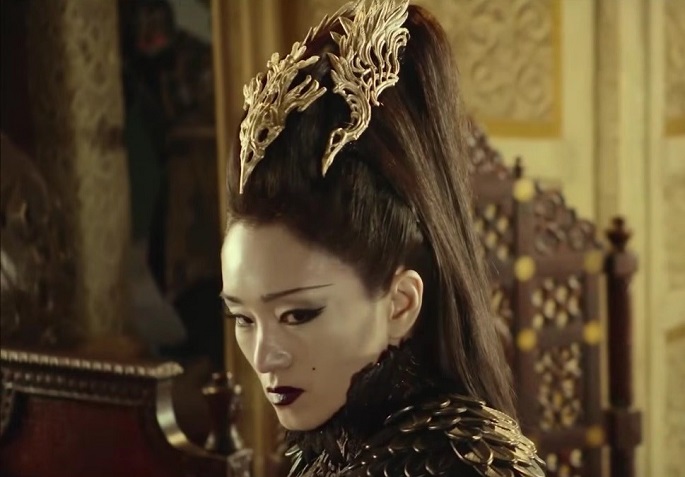“Cinema builds bridges between China and the rest of the world.”
Gong Li shared a piece of her mind to an Asian Entertainment correspondent during a Cannes interview in 2012.
They must have been very long bridges, and it has been quite a long journey for Gong who debuted as a lead in Zhang Yimou’s “Red Sorghum” in 1987.
Based from Nobel laureate Mo Yan’s 1986 novel of the same name, Zhang’s debut film earned the Golden Bear--the highest award--at the 38th Berlin International Film Festival in 1988.
It reaped awards from various film festivals in Cuba, Brussels, Hong Kong, Montreal, Germany, Sydney and Zimbabwe, and from China’s very own People’s Hundred Flower Award (its equivalent to the American Golden Globes) and Golden Rooster Awards.
That’s how the multi-awarded actress, mega-endorser, beauteous raven-haired Gong primarily carved her name in showbiz--and what a magnificent start she had at 22.
Influenced by her parents, both teachers, Gong said that she initially wanted to be “a music teacher in kindergarten,” in an interview with David Poland for DP/30@Cannes in 2014.
Luckily for the film industry, it didn’t turn out that way.
She was most visible in the late ‘80s and early ‘90s where moviegoers saw her starring in four films in 1989 and 1994.
Despite poor reviews of “Codename Cougar” (1989), film juries took notice of Gong’s acting prowess and validated it by conferring her the Hundred Flowers Award for Best Supporting Actress, her first acting trophy.
Born in Jinan in Shandong Province, Gong dazzled not only the local entertainment circuit but Hollywood, too.
She starred opposite Collin Farrell and Jamie Foxx in “Miami Vice” (2006) and Jack Cusack in “Shanghai” (2010).
When “Miami” premiered in West Hollywood in Los Angeles, a CTTV reporter asked the film’s director Michael Mann to rate Gong from one to 10 and he quickly said “ten.”
“She’s always ten. She’s more than--she’s ten plus,” said Mann.
Pertaining to her roles in “Memoirs of a Geisha” (2005) and “Miami,” she told the South China Morning Post in 2007: “I like them very much. They have very strong, sharp characters.”
Gong refused to label her role of a widowed Japanese aunt in “Hannibal Rising” (2007) as anything but plain. Lady Murasaki “shouldn’t be considered as an ordinary housewife,” she said during an interview with The Weinstein Company, an American film studio.
She considered her character as “an extraordinary woman.” How did she justify that in the big screen?
“Even the smallest scenes . . . she’s always bringing something new . . . lots of sensitivity, lots of emotion . . . ,” said British actor Gaspard Ulliel, the film’s Hannibal and Murasaki’s disturbed nephew.
She shared the stage with American actor Keannu Reeves (Neo of the “Matrix” franchise) when co-presenting the nominees for Best Director award at the 2014 Film Independent Spirit Awards in California.
French cosmetics giant L’Oreal and Swiss luxury watchmakers and jewelers Piaget signed her up to be a brand ambassador in 1996 and 2013, respectively.
Perhaps more notably, the U.N. Food and Agriculture Organization appointed her ambassador in 2000, and Time selected her for inclusion in its “60 Years of Asian Heroes” feature in 2006.
Her classic beauty graced the Chinese edition of some of the prominent international fashion magazines: Bazaar, Cosmopolitan, Elle and Marie Claire. Time magazine’s Asian edition called her “glorious” as it put her face on its cover in 1996.
Beijing News listed her name at number one on its 2006 edition of “50 Most Beautiful People in China.”
Turning 51 on Dec. 31, the 5-foot-7 star remains a sight to behold, still looking young for her age.
What seems to be her secret all these years or beauty regimen?
“When someone asked me about my idea of beauty, I always say it’s what’s inside that makes you beautiful,” Gong said when she sat down for an interview with French movie channel Cinemoi at the Hotel Martinez during the 64th Cannes Film Festival in 2011.
“If you have a calm heart and spirit, you have everything.”



























